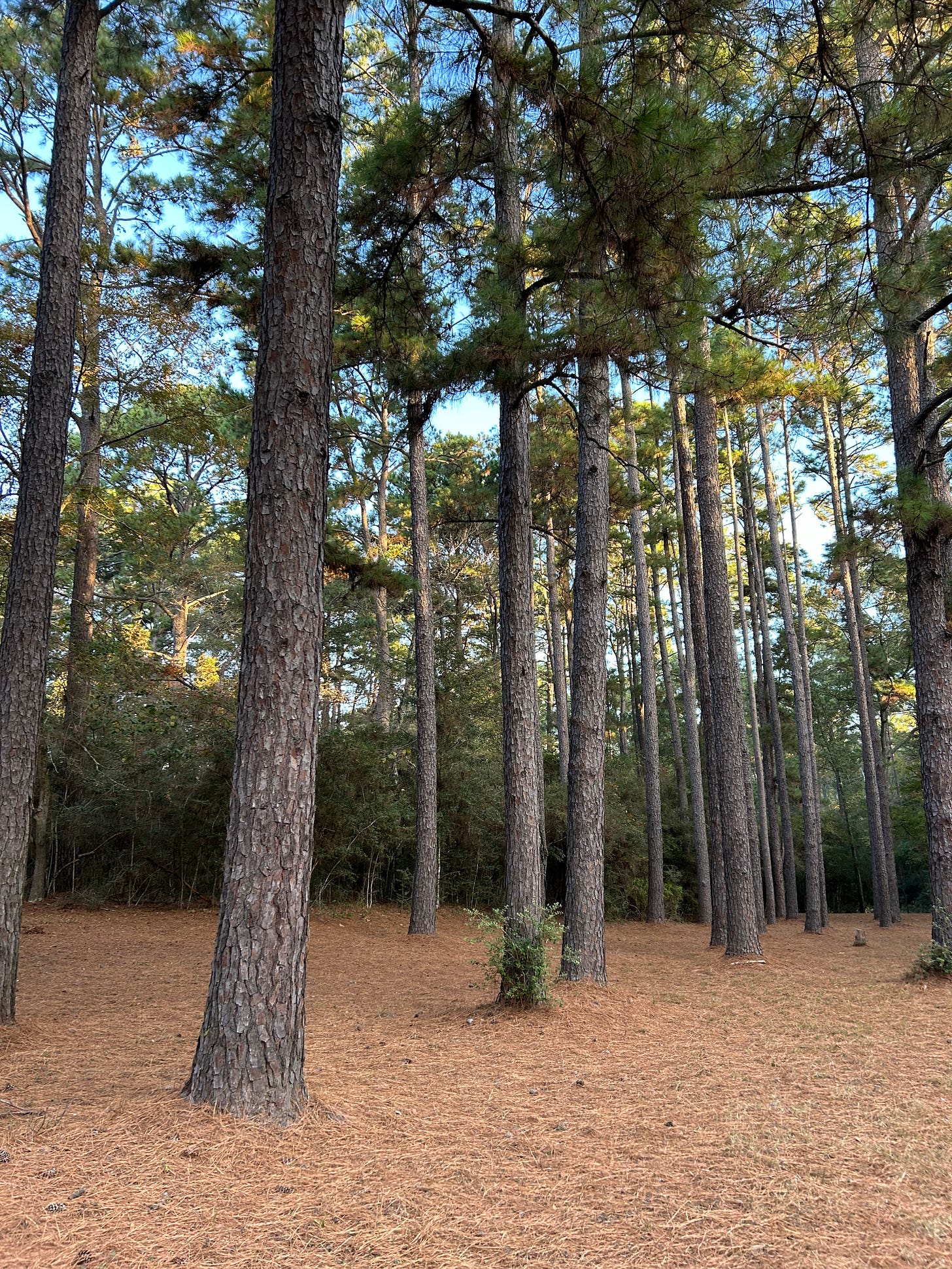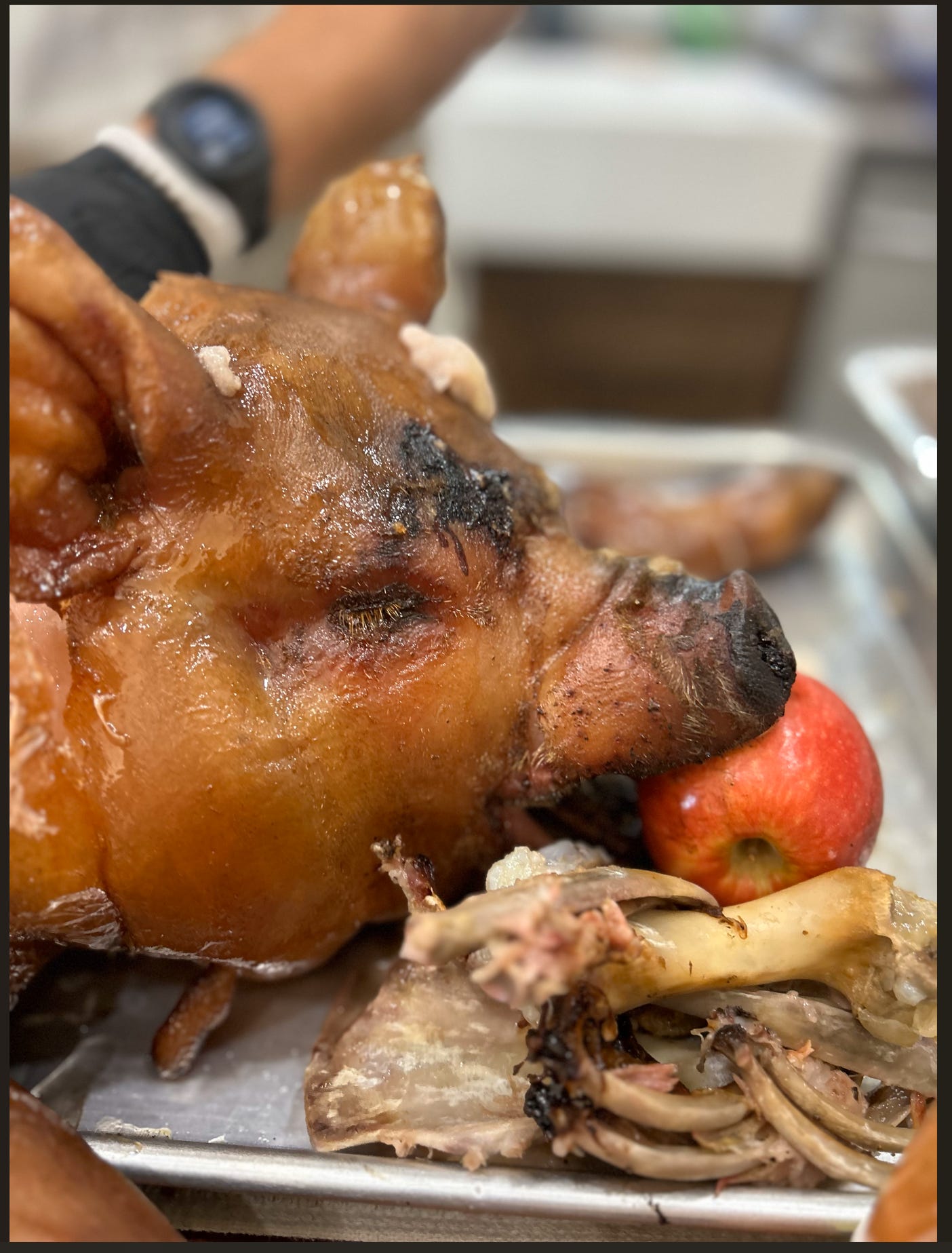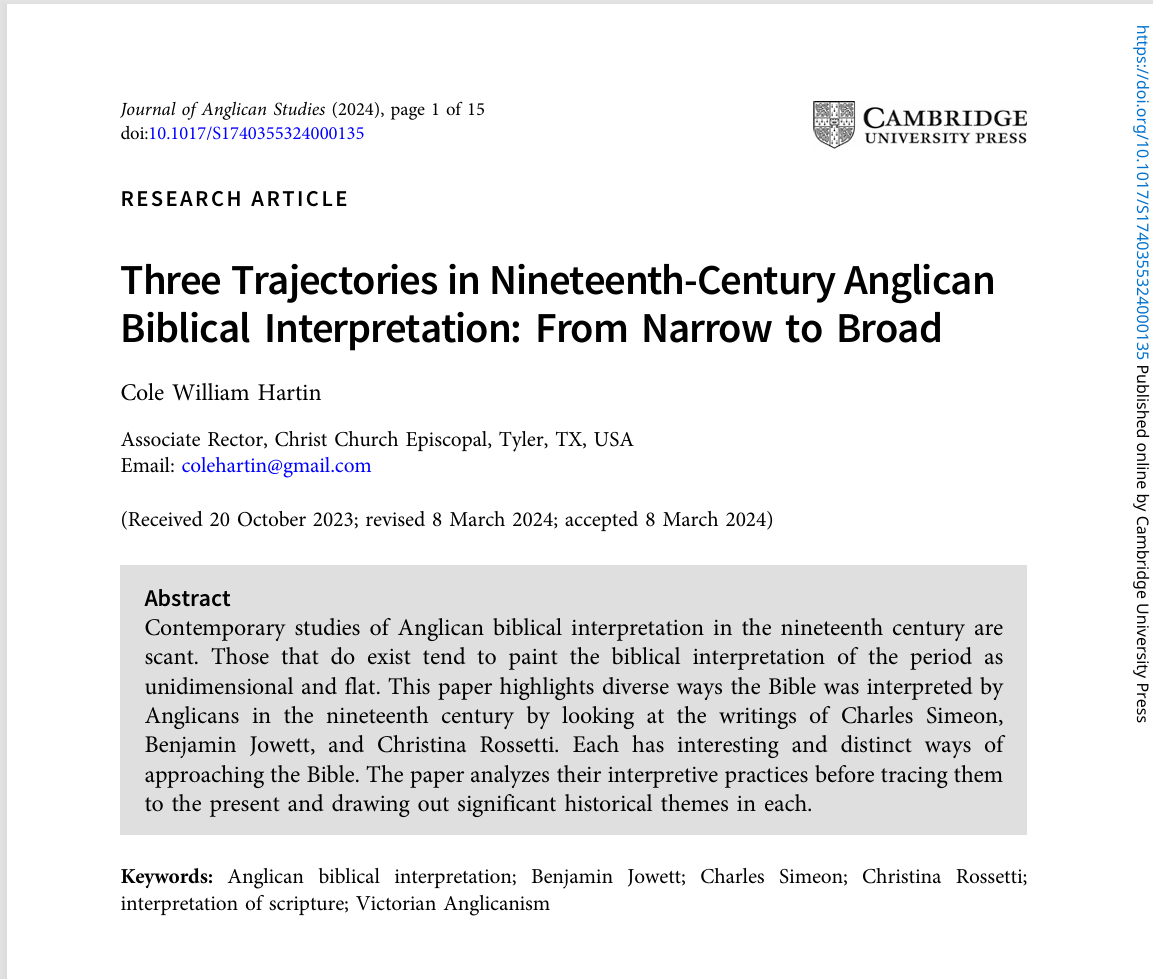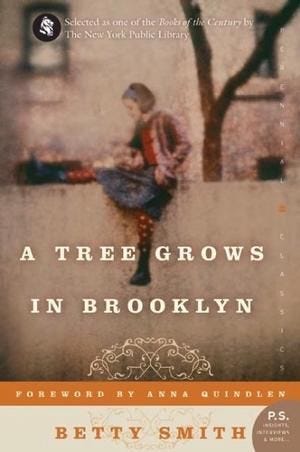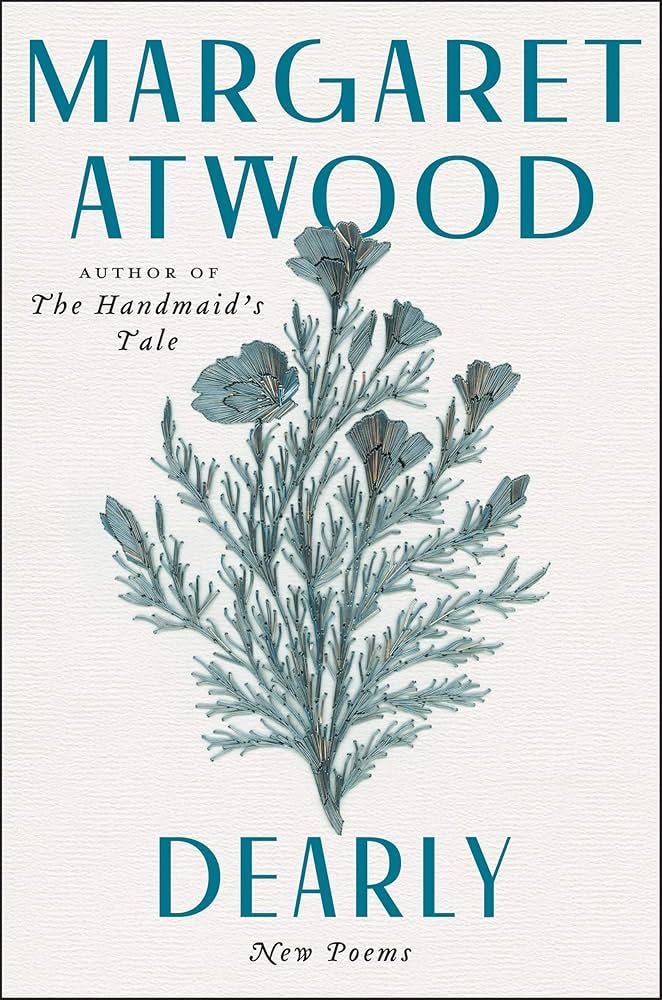Dear friends,
It’s good to begin writing to you on this gloomy, cool November day (though I realize by the time I finish it, it may no longer be cool and gloomy!).
It’s been a full and busy month of family life and ministry. I was away for a few days at our diocesan clergy conference, we celebrated Halloween, All Saints’ Day (with two baptisms!), and even went to a pig roast!
Writing
This has been a productive month for writing. I have three pieces in the pipeline, a popular essay, a book review, and an academic article. One will be coming out in about a month and the other two in the New Year. I will pass them on as they become available.
Otherwise:
My most recent academic article, “Three Trajectories in Nineteenth-Century Anglican Biblical Interpretation: From Narrow to Broad” in The Journal of Anglican Studies is available in full online. I believe it will be in print in the next issue of the journal, which should be out this month.
This is a piece that is written for the academy, and so it’s a little more jargony than some of what I share here. If you are interested, its a bit of a survey of different ways Anglicans read the Bible in the nineteenth century, drawing from my recent book.
The gist of my argument was that there was then (as now) a spectrum of interpretative practice, from more wooden, tight readings of the letter of Scripture, filling out toward readings that were more expansive and figurative.I also wrote a short piece on the communion of saints for our parish newsletter.
Recent sermons are here and here:
Reading
This was a satisfying month in reading.
I read Leif Enger’s Peace Like a River for the first time this month. It was such a good, nourishing story.
If you haven’t read it yet, the tale is told from the perspective of a young Reuben Land, who faithfully describes the dynamics and adventures of his family. His father Jeremiah Land is almost a quite figure, with a faith that looms larger than life. And his two siblings are interesting too. His older brother Davy gets into some trouble, which is what drives the narrative. And his bright younger sister Swede is full of great insights.
The novel is set in the 1950s in the Midwest is great reading for the autumn and winter months.Intervarsity Press just released a new edition of Diary of an Old Soul, a collection of poems by the Victorian novelist, pastor, and poet George MacDonald. There is a nice introduction and some notes by Timothy Larsen. I wrote a review of the book so won’t say much more now, but will share it in due time.
I also read Betty Smith’s A Tree Grows in Brooklyn for the first time this past month. This is semi-autobiographical account of Smith’s life, following the childhood and adolescence of Francie Nolan in Williamsburg in the early 20th century.
When I think of Brooklyn today, I think of hipsters and decadence and indie music. But Smith’s account gives us the gritty history of the place, and gives us a glimpse of the difficulties of American poverty.
There are parts of the book that were hard for me to read. It portrays a challenging life that many lived through, where education was the only way out. But there is joy even here, even when folks have so little, know so little.In a couple of weeks I am facilitating a Local Theologian Fellowship through the Center of Pastor Theologians, where I am fellow. We are kicking off our first meeting by looking at Fred Sander’s The Holy Spirit: An Introduction. I am new to Sanders work, and this was a book worth reading. It was a little dry, as theology proper sometimes is (and sometimes needs to be!), but it was also a sound theological treatment of the Holy Spirit, which means it was also a treatment of Trinitarian theology.
Sanders draws from across the Tradition, with a decidedly Reformed Protestant leaning (at least this is what I picked up in the book). The pneumatology was also deeply rooted in Scripture.
One of my concerns with the book was the way that Sanders took Scripture for granted. I think taking Scripture for granted ontologically is a good thing. It’s a given in God’s revelation. But he seemed to take it for granted historically, and I felt this was a little ham-fisted. For understanding the economy of the Spirit, we can begin with Scripture and its witness, but we also must enfold the process of the writing and canonization of Scripture as part of the Spirit’s work. Maybe Sanders was simply not able to make it here in short treatment, but it was an area I thought should have been developed more.Margaret Atwood’s Dearly, a collection of poems, was quite good. I had only read some novels by Atwood, but never her poetry. I was surprised how much these poems, often reflecting on aging and loss, resonated with me.
Speaking of loss, I read J. Todd Billing’s The End of the Christian Life: How Embracing Our Mortality Frees Us to Truly Live. This book was born out of Billing’s diagnoses of terminal cancer, and then really launches into an exploration of mortality in light of Scripture, the Christian tradition, and the modern world.
This is not an abstract treatise on mortality or death, but feels very urgent as Billing’s is thinking about his dead more immediately and concretely in light of his diagnosis.
This was a helpful book for me as a pastor, especially as I am thinking and writing about loss, but I think it would be helpful for those who are dealing with prolonged illness, or tending to folks dealing with prolonged illness.Finally, I read George Weigel’s To Sanctify the World: The Vital Legacy of Vatican II. One of the great parts of studying theology at the Toronto School of Theology was that, though I was based at an Anglican college, I spent a lot of time with Christians from other traditions. I took a good number of courses at Roman Catholic colleges and so imbibed lots of good Catholic theology.
All of this is to say I know a little bit of Vatican II both from these courses and from worshipping from time to time in Catholic parishes in Toronto. But I didn’t really have a good grasp of all that went on before, during, and after Vatican II. Weigel’s book served as a great guide in thinking through all of this, from a traditionalist reading of the council.
Listening
Sometimes I forget which artists/albums I’ve already talked about here. But here are a few audible delights from this past month:
It was a pleasure to be able to worship at our Choral Evensong for the Feast of All Saints:
And, I’ve been back on a Lorkin O’Reilly kick. He is a Scottish-American songwriter who I love. His music is sad. But it is deeply beautiful.
O’Reilly is master of making the concrete and specific universal. His songs seem to be written from heartbreak and difficult life situations that I’ve never had to face. But it’s also so easy to connect to them because of the emotion and story telling.
I’ve had Marriage Material on repeat this week.As a sidenote, I’ve long been a fan of the PNW band Mount Erie, but especially Elverum’s most recent albums. Last week Mount Erie dropped a new album Night Palace. The album was a mixed-bag for me. I was drawn to the band’s more meditative and acoustic work. There is some of this, but the album also features tracks that are a lot heavier and experimental.
It’s good stuff, but it’s also more cacophonous at times. I’m going to give it another few listens but wanted to mention it since it just released.
Watching
I watched The Apprentice in the theatre with my friend David on its opening weekend. I think there were only five of us there.
It’s a weird movie to write about.
On the one hand, it was excellent: It had this wonderful atmosphere (almost like The Joker!), told a compelling story, had great artistic sensibilities, and gave a fair (if unflattering) origin story to the now President (again!) Donald Trump.
On the other hand, the movie was super dark, icky, and yucky. That means I can’t really recommend it.But it was still probably one of the most compelling and unnerving films I’ve watched this year.
Make of it what you will!
Tasting
There are so many wonderful things to eat this time of year. Here are three delights:
Pecans. There are pecan trees everywhere, and when I make pastoral phone calls I often walk outside. I love to stop and crack open pecans that have fallen on the sidewalk. They have this incredible flavor when they are fresh. There is this subtle caramel sweetness that is so profound, but they are also nutty and buttery and butterscotchy.
Smoked pig. The pig’s head might not have looked appetizing, but the meat was delicious.
Walkers Shortbread. We started on a shortbread in Scotland, and now it is everywhere because there is something about shortbread that is Christmas-y?
Well, that’s all I’ve got to share this month, folks.
Thanks for reading, and please share this newsletter with anyone you think who might be interested it.
In Christ,
Cole+





